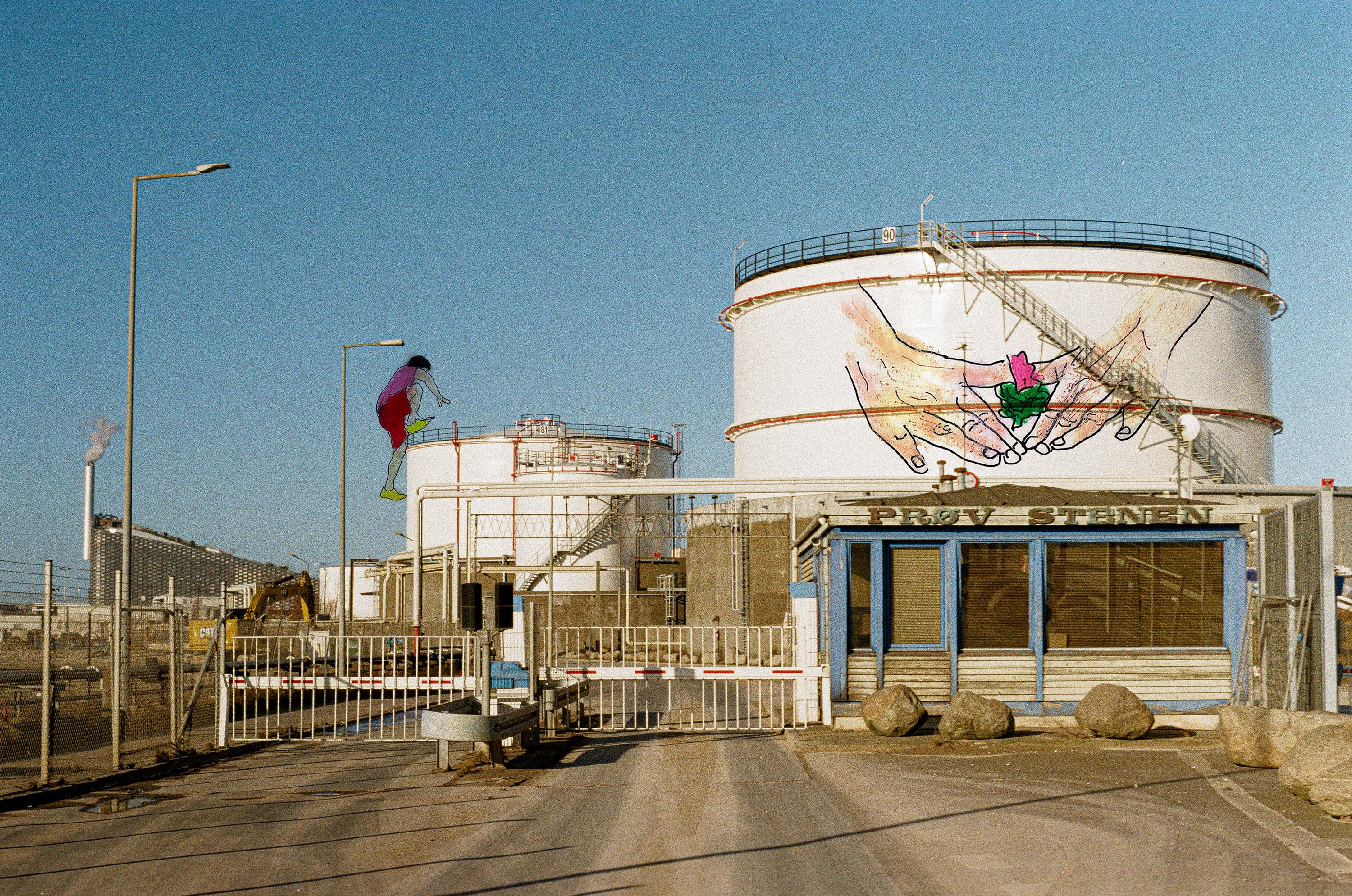Undoing Oil: Regenerative Disassembly for Copenhagen's Petrol Island

Abstract:
Copenhagen aims to become the first carbon neutral capital by 2025. Climate and energy crises are a concern for both the governing and the governed among Denmark’s six million people. Compared to its Nordic neighbours, the country is second only to Finland with the most ambitious climate targets To curb global emissions and forward the green transition, Denmark is ending its public financing of fossil fuels abroad as well as phasing out oil and gas in the North Sea and encouraging others to follow suit. While the country promises to stop using fossil fuels by 2050, energy humanities scholars suggest the transition is less a challenge of technology or public policy than a matter of society and culture on a global scale. Yet oil companies worldwide go to great lengths to keep the spatial networks of oil invisible on the periphery of urban settlements. In Copenhagen, Prøvestenen or ‘Petrol Island’ is a highly secured coastal landscape for the country’s largest storage of fossil fuels. The vast majority of the Island is not accessible to the public. Both globally and in the soon-to-be carbon neutral city, oil is hidden in plain sight. Denmark has a tradition of public engagement with energy infrastructure, suggesting a need for greater citizen agency in the climate and energy crises. But oil infrastructure appears exempt from this sentiment. A societal shift toward green energy must better engage its individual actors: starting with visibility at the human scale. With two hundred and fifty oil tanks banished to the urban fringe, Petrol Island is a key space in Denmark’s petrocultural transition. This thesis asks, how might spatial access to infrastructure that promotes public engagement with energy industries spur a societal and cultural shift toward life after oil?
Undoing Oil: Regenerative Disassembly for Copenhagen’s Petrol Island is a speculative architectural vision for the Island’s (re)growth. I use a method of ‘regenerative disassembly’, or growth through the unbuilding of things. Through this approach, I focus on infrastructural deconstruction, re-composition, and the reuse of material as methods of environmental repair. To degrade petrochemical leakages and reduce carbon emissions, I plan ecological restoration while making the landscape safe for human encounters. The combined process reveals Petrol Island to be an accessible landscape for public engagement with energy infrastructures for a collective cultural shift beyond oil.
Regenerative disassembly involves three thematic phases:breaking, growing, and taking. These phases give their names to the chapters below. In Breaking, I illustrate the disassembly of oil infrastructure as a method of rethinking repair. This phase learns from the decommissioning of offshore oil platforms as well as relevant post-industrial projects like Landschaftspark in Germany. In Growing I propose to counter the ecological contamination from petrochemicals using phytoremediation while paying homage to existing spontaneous vegetation. This phase is propelled by the local tradition of nature education and pedagogic landscapes for play. Taking is an exploration of community engagement efforts in the Danish welfare model. I examine historical examples of spatial appropriation and urban regeneration in Copenhagen and suggest that Petrol Island is an important stage for socio-cultural change. Each chapter addresses spatial elements and major stakeholders and the thesis culminates with a design proposal for the Island’s transition. Over three seasons on foot I documented subtle growth and the mutating topography of a working energy landscape. Using analogue photographs, sketching, and theoretical research this thesis works to uncover an invisible landscape for its remedial regenerative potential. My findings illuminate that for societal energy transition, a crucial ingredient is collaboration between human and non-human communities. However, long term change is still a slow-moving machine of many parts. I capture just a moment in oil space - the blink of an eye in fossil time.
The
examining
committee
is
as
follows:
Supervisor:
Jane
Mah
Hutton
Committee
member:
Lola
Sheppard
Internal-external
reader:
Marie-Paule
MacDonald
External:
Jill
Desimini
The
defence
examination
will
take
place:
Thursday,
February
23,
2023,
10:00
a.m.
This
will
be
taking
place
online
via
Teams,
contact
the
Graduate
Office
for
link.
The
committee
has
been
approved
as
authorized
by
the
Graduate
Studies
Committee.
A
copy
of
the
thesis
is
available
for
perusal
in
ARC
2106A.